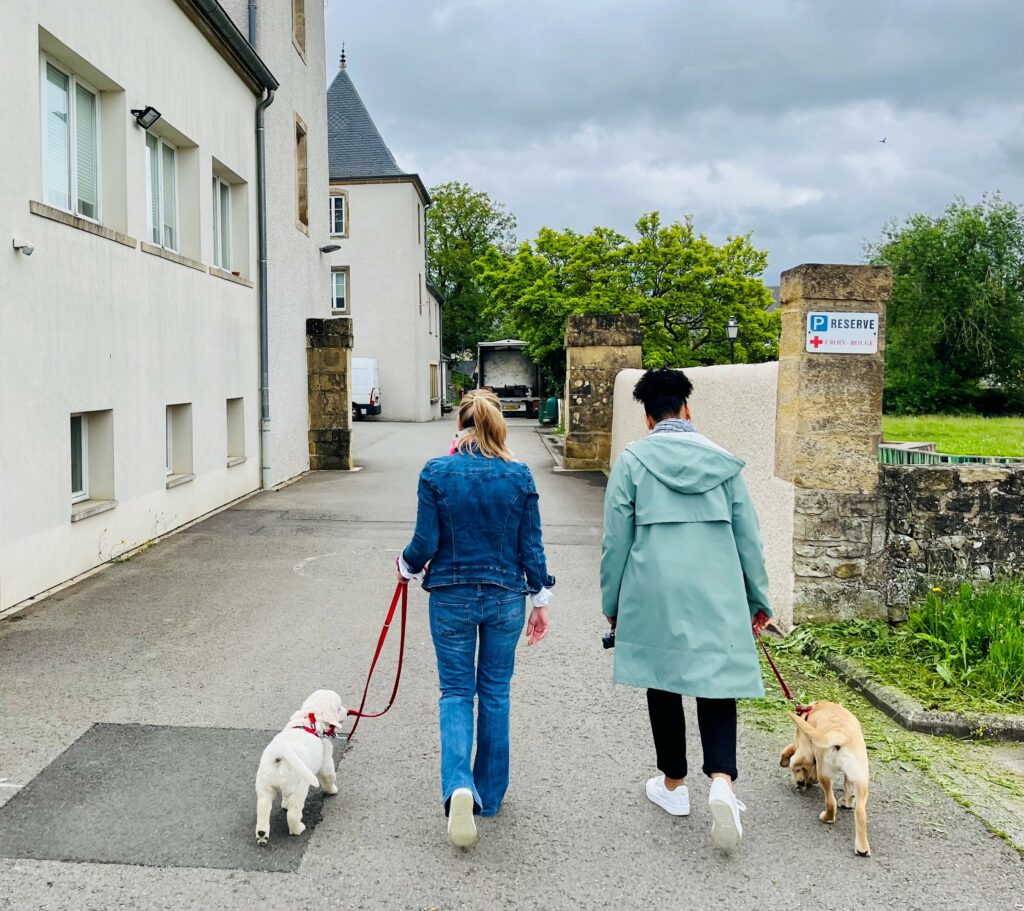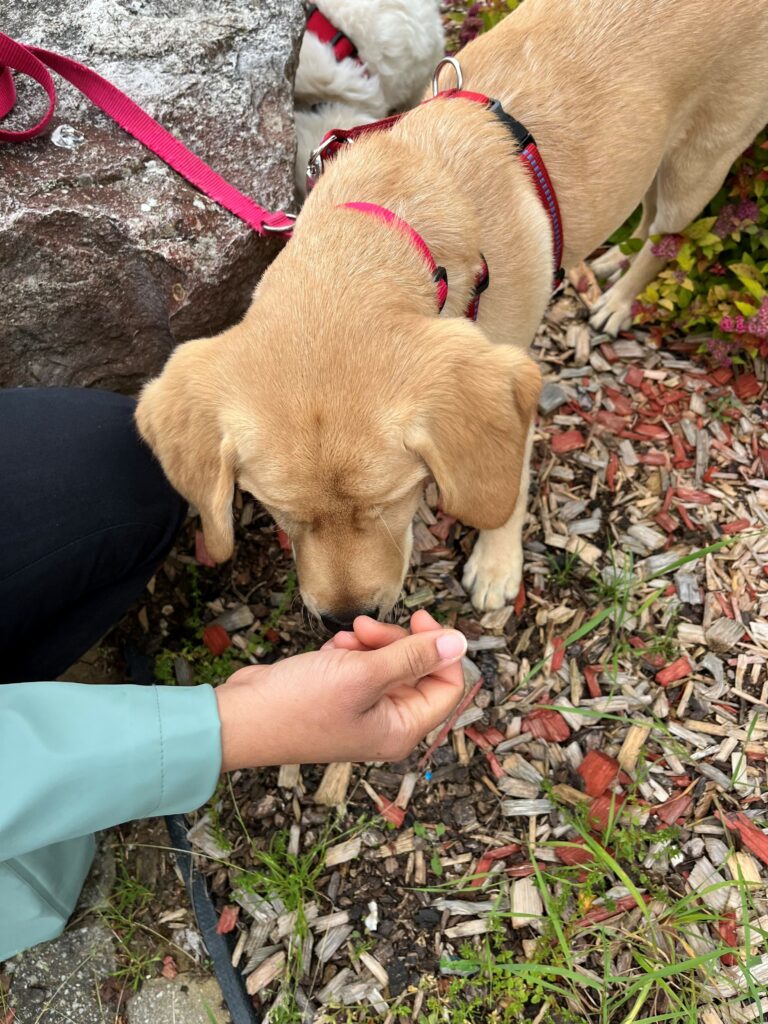08 October 2025

Benjo, a golden retriever, and Kaya, a labrador, have been providing support to children and teenagers of the Luxembourg Red Cross’s Psy-Jeunes Service. These adorable dogs play an essential role in helping to ease the emotional stress of young people and helping them to better regulate their emotions.
What is animal-assisted intervention?
Christiane Weintzen, head of the Psy-Jeunes service, explains: “In animal-assisted intervention, we use the positive effects of animals to help people better manage their emotions”. Studies show that the presence of a peaceful dog in a room contributes to relaxation, because the brain is sensitive to the animals’ calm and provides a feeling of security. Dogs can perceive emotions differently from humans and give direct feedback on our emotional state, making them invaluable aids in therapy.
Which dogs are suitable for therapeutic work?
It’s important that the dog is friendly, open and calm. Breeds such as Golden Retrievers and Labradors are particularly suitable, as are Australian Shepherds and Bernese Mountain Dogs. It’s also vital that the dog shows no fear, so as not to cause any additional stress. Benjo and Kaya will be trained by professional instructors soon.
Success stories from the Psy-Jeunes service
Christiane Weintzen recounts an impressive session with a child who had experienced attachment trauma. By talking about Benjo, who had recently been separated from his mother, the child was able to open up and talk about his own experiences. Dina Dias, a psychologist and psychotherapist with the Psy-Jeunes service, also recounts a session with a 12-year-old girl who couldn’t open up at first. At the next meeting, Kaya was present, and the girl sat down on the floor with him and suddenly told her story.
Animal-assisted therapy at the Psy-Jeunes service is an impressive example of how dogs like Benjo and Kaya can help young people to better regulate their emotions and open up to therapy. The positive effect of the four-legged friends makes a major contribution to the success of the therapeutic work and offers the young clients valuable support on their journey towards emotional recovery.


